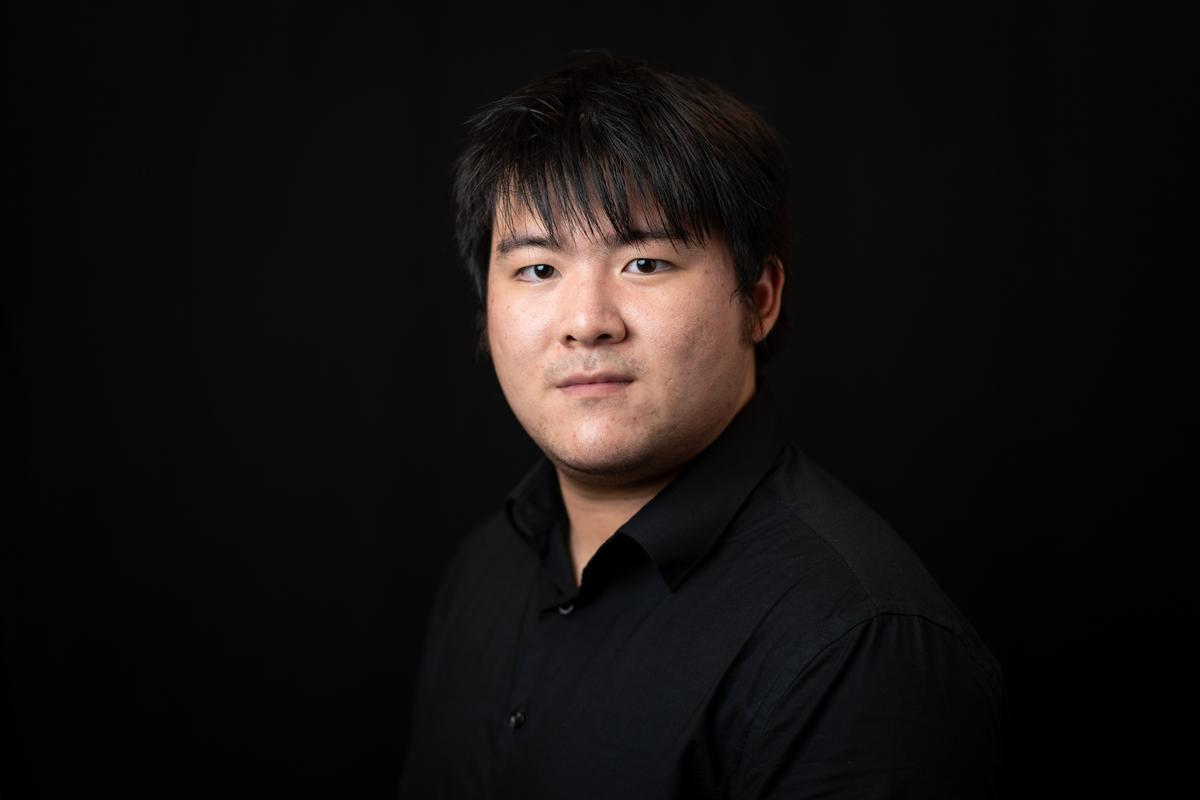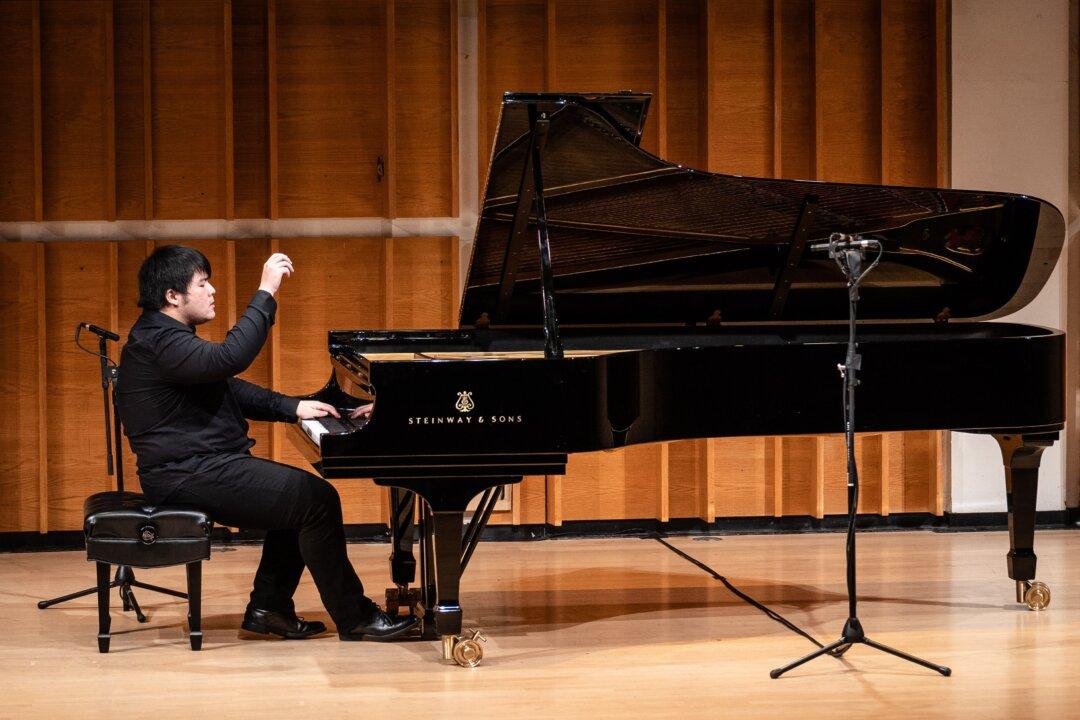Jiusi Zhang, finalist at the 6th NTD International Piano Competition, prepared a program on the theme of “death and transfiguration.”
He performed the Bach-Busoni Chaconne followed by Brahms Piano Sonata No. 2 on Tuesday.
“Traditionally, a chaconne was for either a happy, joyous occasion or a sad and solemn one. This one was from Bach’s Partita No. 2 for Violin, which Ferruccio Busoni arranged for solo piano. Actually, it wasn’t well received when he first wrote it, people felt Busoni didn’t do Bach justice,” Zhang said.
“But it withstood the test of time and proved otherwise, and it’s a widely performed piece now. It’s a very orchestral work, and feels to me like an old sage, imparting wisdom. It’s even, to me, like how in a moment of death your entire life flashes before your eyes,” he said.
“With Brahms, this work [Opus 2] is early Brahms, and he was only 19 when he wrote this, similar to my age,” said Zhang, who is 20.
“And I think it’s an underrated work. He was really ambitious at this age; people have even called these early sonatas, Opus 1, 2, 3, his pseudo-orchestral pieces. This work is full of freedom, I‘d even venture to call it ’anti-German,' as it’s so far from Beethoven’s strict writing.
“There’s so many places that allow performers to express their own understanding, and allows many timings in the piece. There’s a feeling of transcendence and transfiguration in these works for me, in the way the music progresses, like in the register expansion of this piece.
“These are both pieces I’m incredibly fond of, and I was grateful to have the opportunity to practice them in such a detailed way to prepare them for performance; it was a great experience,” Zhang said.
“To really make music, you should be expressing. I cannot just reproduce exactly the composer’s ideas, so we have to do something different with their ideas as the foundation, and we have to explore further.”
Zhang is currently studying at the Oberlin Conservatory of Music under maestro Dang Thai Son, and he says his mind is much more on learning than it is on prize-winning. He doesn’t see awards as a goal at this stage of his life and career.
And one of the most fascinating things he’s learned from this competition experience was the learning the commissioned work, “The Sacred Journey,” which pianists had to perform for the first time in the semi-final round.
“I’ve never learned a commissioned work like this, and in such a short period of time,” Zhang said. “I think it’s a huge challenge, no matter if you’re an experienced or inexperienced pianist. Through this piece, I learned there are many more possibilities on the piano, about the sounds that a piano can produce.”
“The Sacred Journey” displays distinctly ancient Chinese melodies and sounds written specifically for the piano. It was arranged by pianist Qin Yuan of the world-renowned Shen Yun Performing Arts, which has been at the forefront of blending East and West in classical music.
“In the second half, there’s a passage that’s very lyrical, and actually very nostalgic to me. Because now I’m studying in the U.S., and before, I’ve never left my home for such a long time, when I learned this piece, it said something special to me,” said Zhang, who is from China.







